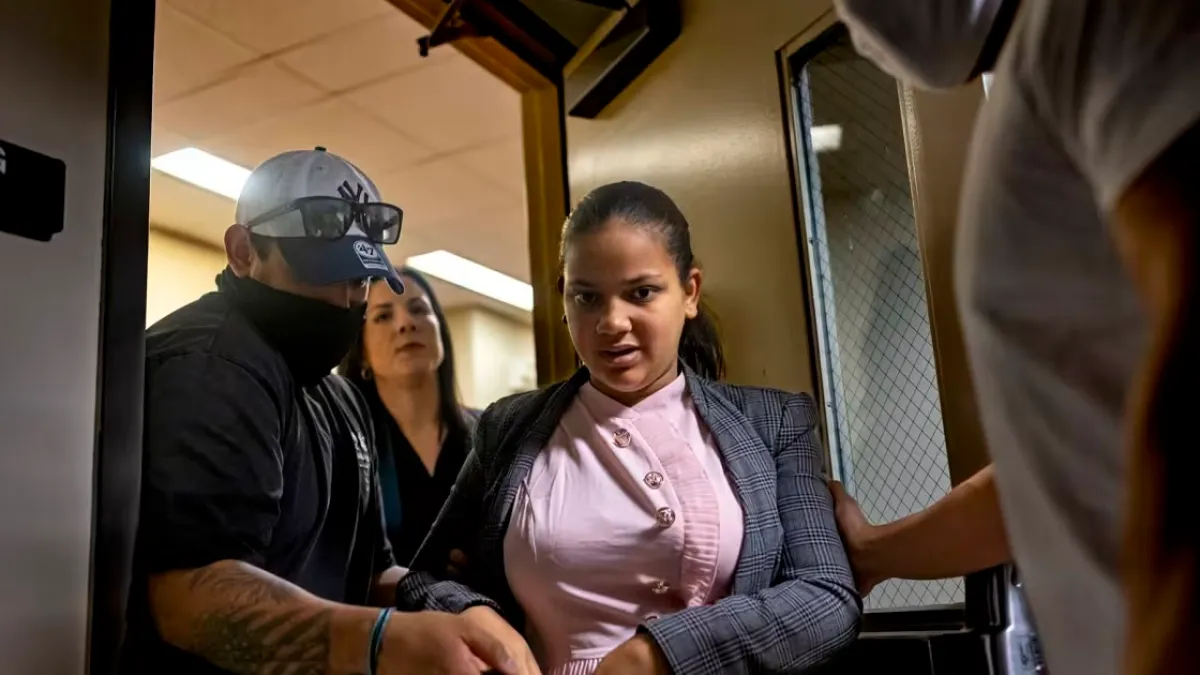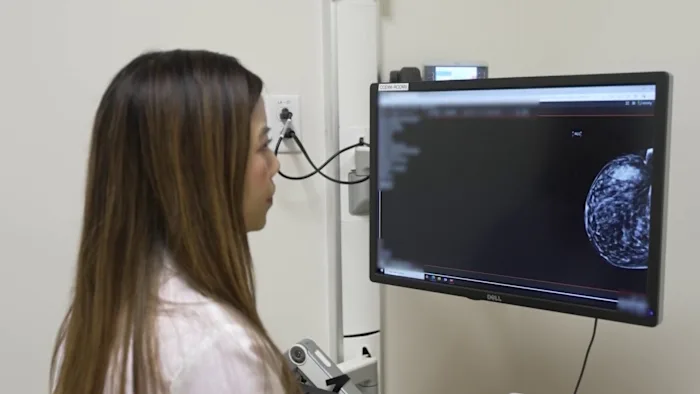Copyright NBC 5 Chicago

Women told advocates and their attorneys they suffered mistreatment and neglect while they were pregnant and held in immigration custody, including “medical neglect,” substandard care during pregnancy and miscarriage, being shackled, being placed in solitary confinement and being given poor-quality food, according to a letter sent to Immigration and Customs Enforcement officials and Senate committees Wednesday. “The stories that are represented in this letter are just the tip of the iceberg,” said the author of the letter, Eunice Cho, senior counsel at the American Civil Liberties Union’s National Prison Project. “You have women who are talking about being shackled and restrained while they’re actively miscarrying; you have women begging and pleading for things as basic as prenatal vitamins and being denied.” In addition to the ACLU and its Louisiana chapter, the National Immigration Project, Robert F. Kennedy Human Rights, the Sanctuary of the South and the Sanctuary Now Abolition Project signed the letter. They are pressing for ICE to identify and release all pregnant women in custody and to refrain from detaining anyone known to be pregnant, postpartum or nursing. The Department of Homeland Security did not immediately respond to request for comment about the letter. In August, a DHS spokesperson denied allegations of mistreatment of pregnant detainees in a statement to NBC News after a report by the office of Sen. Jon Ossoff, D-Ga., found 14 credible alleged reports of mistreatment of pregnant women in ICE custody. Advocates from the groups involved in Wednesday’s letter “met and documented the experiences of over a dozen women, including those who were pregnant, or who had recently experienced a miscarriage” in custody, according to the letter. Six of those women agreed to share their stories publicly, it added. “We heard multiple stories of women losing their pregnancies in detention and suffering from the lack of proper medical care,” Cho said. “Those stories, I think, really are some of the most chilling stories I’ve heard about detention.” The women whose alleged experiences are recounted in the letter were all given pseudonyms, because they are “terrified” about retaliation and some still have active court cases, Cho said. Some identifying information about the women was also omitted for the same reason, she said. DHS and ICE did not respond to requests sent Tuesday asking for details about the agency’s detention of pregnant women and standards practices for their care in ICE custody. DHS and ICE also did not immediately respond to request for comment Wednesday morning about the allegations in the letter. US & World In one case described in the letter, a woman identified as Lucia described experiencing “heavy vaginal bleeding and cramping in the middle of the night” while she was detained at an ICE processing center this year. Advocates said that although she requested immediate medical attention, she was not taken to see medical staff members until the middle of the next day. “Medical personnel merely took her to a small room, and left her bleeding alone without informing her of what was happening,” according to the letter. “Medical staff did not give her any food, water, or pain medication for several hours. Much later that evening, after a significant loss of blood, Lucia was transported to an emergency room approximately an hour away, with her arms and legs shackled.” Lucia required a blood transfusion because of how much blood she had lost, and she was informed at the hospital that she had suffered a miscarriage, the letter says, adding that she was then returned to ICE custody, where she still experienced “abdominal pain and heavy bleeding” a month after her miscarriage. Lucia has since been deported, according to the advocates. A woman identified in the letter as Marie said a doctor told her that she was pregnant in December after she entered the United States on a valid tourist visa and that the pregnancy was considered high risk because of underlying medical conditions. She said she was detained while she was traveling from the United States to Canada after her original identity documents were stolen and she was given an electronic version as a replacement while she waited for the paper copies, the letter says. She was then sent to an ICE facility several states away, where, the letter claims, she endured multiple instances of “medical neglect and psychological harm” during the 20 weeks she was in custody. She said she was held in solitary confinement for at least three days after officials there “did not believe her when she informed them of her pregnancy.” In the letter, Marie says that she was given poor-quality food she was often unable to eat, denied access to prenatal vitamins and given a vaccination without her consent and that she was not given translation services to know what the vaccine contained. On several occasions, she “reported severe cramps and requested medical help but was ignored,” the letter says, adding that Marie was released after legal advocates intervened. Her time in detention “completely scarred her psychologically. It created major complications to her pregnancy,” said Mich González, a co-founder of the Sanctuary Now Abolition Project, which advocates for immigrants. Marie cried every day and night for a week, and she suffered from night terrors after she was released from detention, according to the letter. She developed eclampsia, a serious pregnancy complication characterized by elevated blood pressure and convulsions, in the final weeks of her pregnancy, the letter says. González said her condition was “so severe she remained hospitalized for a long while after giving birth because she was at risk of organ failure.” “She continues to struggle with postpartum depression, in large part due to the trauma she experienced while detained,” it says. In the News In August, DHS spokesperson Tricia McLaughlin said in a statement to NBC News about previous allegations of mistreatment of pregnant detainees, “Any claim that there are subprime conditions at ICE detention centers are false.” She said in the statement that all ICE detainees were provided with “proper meals, medical treatment, and have opportunities to communicate with lawyers and their family members.” McLaughlin also said that from the moment they arrive at ICE detention facilities, detainees undergo medical, dental and mental health intake screenings, as well as follow-up health assessments, and that they have access to 24-hour emergency care. She also claimed in the statement that it was “irresponsible” to report on the allegations from a pregnant detainee whose name was being withheld, adding that such alleged “FALSE” claims contribute to the “demonization” of immigration officers. The organizations that signed Wednesday’s letter said the conditions the women said they experienced violate a directive from the Biden administration, which says ICE should not detain or arrest people who are known to be pregnant, postpartum or nursing for violating civil immigration law, unless there are exceptional circumstances, such as that they are national security risks or pose a danger. The Trump administration has not revoked the policy, but advocates say that as detention has surged overall and more immigrants are being denied release, they have seen an increase in the number of pregnant women through their work in detention facilities. “There are more people in detention than ever. Detention is becoming increasingly prolonged,” said González, of the Sanctuary Now Abolition Project. “The stress alone of being in detention right now is horrific, especially because most people have no idea when it will end. It’s not like before, where people had a sense of timeline. Now nobody knows when their detention will end.”



